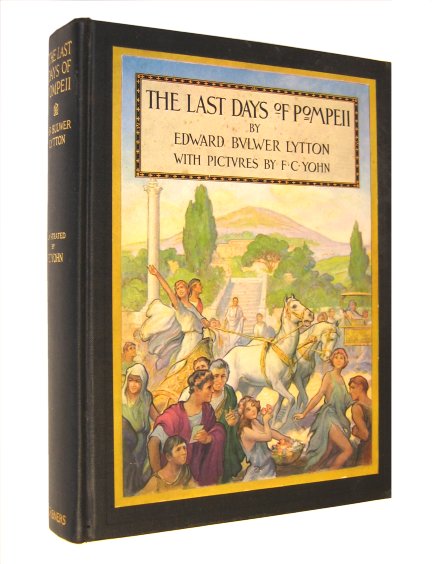|
|
|


|
|

|
The Long White Mystery
by Craig Stark
#80, 9 October 2006
|
Deep in the Woods
- and Nearly Lost -
With Clara Dean Marshall
For much of my childhood and well into my adult life I was burdened with the belief that, if you could trust anything about books, it was that the bad stuff would eventually fall away and only the good stuff would survive - and be far more conspicuous by virtue of its survival. That's how it worked, sure enough, and examples were not hard to come by: Melville was virtually unknown during his lifetime; Emily Dickinson and Thoreau? Similarly obscure, and so on. I'm guessing that at some point in my academic career some teacher of mine must have asserted the verity of this myth, and, since it must have seemed perfectly reasonable, I bought it. The problem with swallowing this sort of thing whole is that, when you encounter a book that has stood time's test, long since passed through the unforgiving filter intact, you necessarily assume that it must be good - why else would it survive? - and, if you read it and hate it, well, the tendency is to question yourself first, ask why the heck you didn't understand what the author was trying to do.
Funny thing is, there's nothing like everyday bookselling to disabuse you of mistaken assumptions about books, and bookselling has surely taught me that time doesn't always get things right. Speaking of assertions - and to offer an example - it's been almost universally asserted that 19th century novelist and playwright Edward George Bulwer-Lytton is perhaps the greatest bad writer who ever lived. Recall, if you will, Peanuts' Snoopy sitting at his typewriter and beginning a bad novel: "It was a dark and stormy night." Blatant plagiarism, in case you didn't know. This was in fact one of Bulwer-Lytton's own lines. Here's the complete and significantly more painful citation from his novel Paul Howard: "It was a dark and stormy night; the rain fell in torrents - except at occasional intervals, when it was checked by a violent gust of wind which swept up the streets (for it is in London that our scene lies), rattling along the housetops, and fiercely agitating the scanty flame of the lamps that struggled against the darkness."
Apologies up front here, but for some reason I can't resist sharing my favorite Bulwer-Lytton masterpiece with you, a poem titled "The Birth of Love." Here it is in all its ... whatever:
THE BIRTH OF LOVE
Like a Star in the seas above,
Like a Dream to the waves of sleep -
Up - Up - THE INCARNATE LOVE -
She rose from the charmed deep!
And over the Cyprian Isle
The skies shed their silent smile;
And the Forest's green heart was rife
With the stir of the gushing life -
The life that had leap'd to birth.
In the veins of the happy earth!
Hail! oh, hail!
The dimmest sea-cave below thee,
The farthest sky-arch above,
In their innermost stillness know thee:
And heave with the Birth of Love! Gale! soft Gale!
Thou comest on thy silver winglets,
From thy home in the tender west,
Now fanning her golden ringlets,
Now hush'd on her heaving breast.
And afar on the murmuring sand,
The Seasons wait hand in hand
To welcome thee, Birth Divine,
To the earth which is henceforth thine.
Behold! how she kneels in the shell,
Bright pearl in its floating cell!
Behold! how the shell's rose-hues
The cheek and the breast of snow,
And the delicate limbs suffuse,
Like a blush, with a bashful glow.
Sailing on, slowly sailing
O'er the wild water;
All hail! as the fond light is hailing Her daughter,
All hail!
We are thine, all thine evermore:
Not a leaf on the laughing shore,
Not a wave on the heaving sea,
Nor a single sigh
In the boundless sky,
But is vow'd evermore to thee!
And thou, my beloved one - thou,
As I gaze on thy soft eyes now,
Methinks from their depths I view
The Holy Birth born anew;
Thy lids are the gentle cell
Where the young Love blushing lies;
See! she breaks from the mystic shell,
She comes from thy tender eyes!
Hail! all hail!
She comes, as she came from the sea.
To my soul as it looks on thee;
She comes, she comes!
She comes, as she came from the sea,
To my soul as it looks on thee!
Hail! all hail!
Note also that San Jose State University sponsors the annual
Bulwer-Lytton Fiction Contest, which
cheerfully invites contributions of bad writing in the spirit of Bulwer-Lytton.
So, despite penning some of the most florid bilge in the history of mankind, Bulwer-Lytton lives
on over a hundred years hence - in fact, The Last Days of Pompeii, which contains the complete text
of "The Birth of Love," is still regularly bought and sold in the marketplace. Here's my treasured copy, which as yet I've been unable to part with due to the presence of 10 swell F.C. Yohn color plates:

Another example, this time with apologies to BookThink's Science Fiction Editor Tim Doyle. If you think that 20th century readers are any better at discerning good writing, keeping the baby, and chucking out bathwater, think again. Salon.com contributor Laura Miller cites the following H.P. Lovecraft passage from a story called "The Lurking Fear" as convincing (or convicting?) evidence that SF legend Lovecraft, at the very least, needs to be counted "high" among the worst ever:
Shrieking, slithering, torrential shadows of red viscous madness chasing one another through endless, ensanguined corridors of purple fulgurous sky ... formless phantasms and kaleidoscopic mutations of a ghoulish, remembered scenes; forests of monstrous overnourished oaks with serpent roots twisting and sucking unnamable juices from an earth verminous with millions of cannibal devils; mound-like tentacles groping from underground nuclei of polypous perversion ... insane lightning over malignant ivied walls and daemon arcades choked with fungous vegetation ...
And you thought Bulwer-Lytton was bad.
The
complete article, by the way, is a good read.
Ok, well, this is good fun up to a point, but the point of suffering through this is to illustrate that at least some bad stuff does survive. In Lovecraft's case, it not only survives, but it's hotly collected as well. Unfortunately, the converse is also true: Some good stuff doesn't survive.
Here's a book I didn't know existed before I started selling books:
First published in 1908, Dimock's Florida Enchantments was relatively popular at the outset, then revised in 1926; and then it pretty much plunged off the radar. I've sold this book perhaps half a dozen times - it surfaces now and again in my corner of the planet - and have long admired its stunning photographs of early-century, unspoiled Florida flora, fauna, etc., and even moonshiners.
Despite its having passed through my hands many times, it wasn't until recently that I actually
read it. A few weeks ago I was preparing to list yet another copy and, while leafing through it to
assess condition issues, my eyes were suddenly riveted to a passage from Chapter I. Click
here if
you have a few minutes to kill.
Hard to stop after that, if you know what I mean.
Anyway, Florida Enchantments should, in my opinion, occupy a fairly esteemed spot in any
legitimate list of classic Floridiana, and yet it's all but forgotten - or was until
a few years ago when it was at long last (sort of) rescued and reprinted in limited numbers
as part of the
Blue Water Classics series.
If you've been bookselling as long as I have, I'm sure you could cite a number of ripe examples of nearly-forgotten books that could and should be rescued from oblivion - reprinted - but the sad thing is that some good stuff just plain gets lost. To me, it's a mystery why - I mean, if something is dearly loved because it's truly good, shouldn't the very force of persistent demand keep it alive?
Which brings me to a second example - (Clara) Dean Marshall's The Long White Month.
|
|







|
|












|


